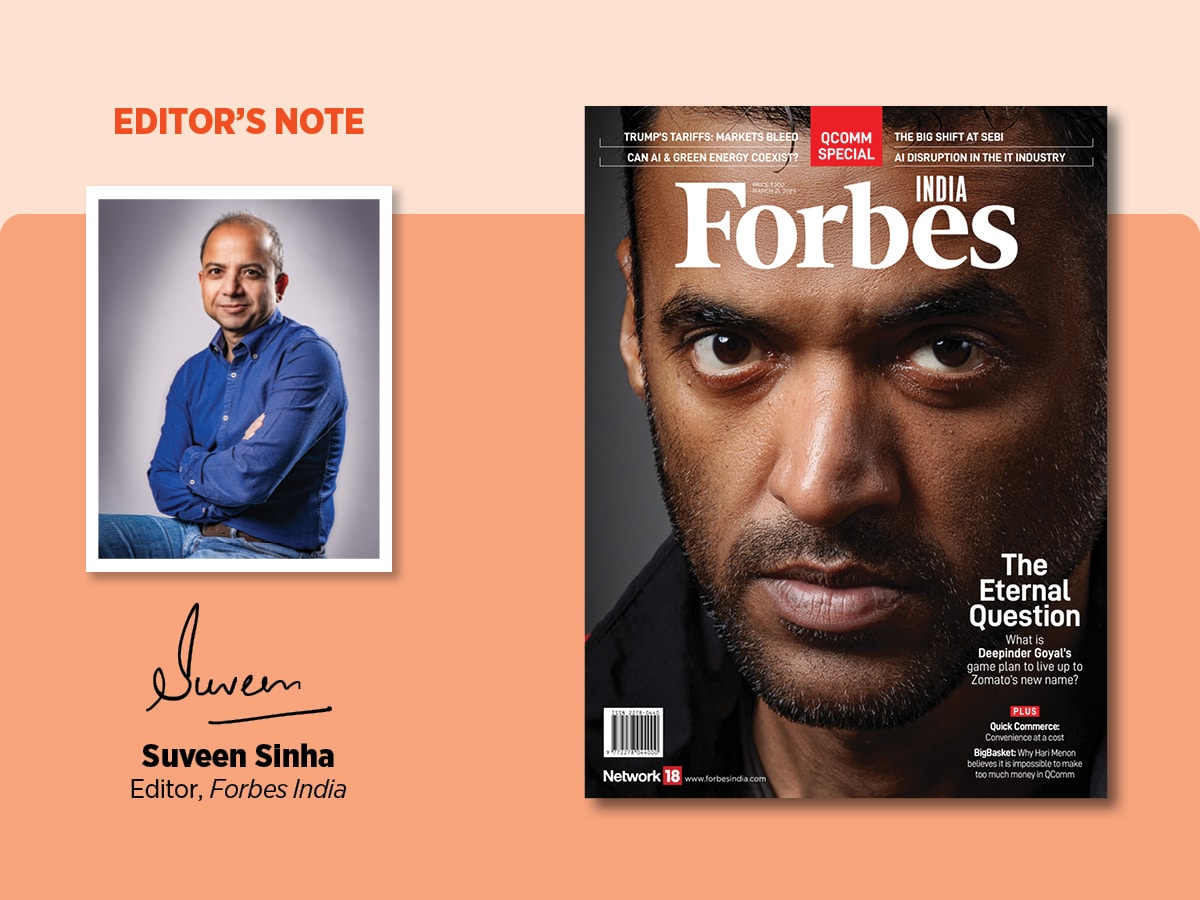Quick Commerce and its unlikely success story in India
Globally, nearly every QComm startup has shut down, changed its strategy, suffered a massive erosion in valuation, or scaled down drastically. In India, however, it has scripted unlikely success



Not everyone wasted the pandemic. Some people found they had hidden talents: A well-respected public relations professional took to painting and now does humongous canvases. A few learned the ukulele. Some found the time to start a family.
In those morose times, I discovered more things at which I was no good at all. One of them was assessing the business potential of quick commerce, or QComm.
In 2021, I got to know about an ecommerce outfit that was starting 10-minute delivery of groceries and other everyday items. In an informal chat, its representatives asked me if that would make for a story in the media.
Honestly, I did not think much of 10-minute delivery as a business model. Would it be of much use to anyone? Can besan, banana, or bread be really the thing you would need in an emergency? They are hardly lifesaving.
But it was a story, nevertheless. It was like having a talking puppy. Would it be of much use? Probably not. But won’t it be great to have one and tell everyone about it!
I could not have been more wrong. QComm is scripting an unlikely success story in India. Elsewhere in the world, nearly every QComm startup shut down, changed its strategy, suffered a massive erosion in valuation, or scaled down drastically. Not so in India.
Here in India, there is a dramatic shift in consumer behaviour from planned weekly shopping to impulsive taps on QComm apps. Blinkit rings the doorbell at our home two to three times every day. In the process, it has become a case study of rebranding (it used to be Grofers) and remodelling (Grofers used to make next-day deliveries) and come to be seen as the brightest spot for Zomato.
Blinkit was struggling when Zomato acquired it in 2022. In May last year, Deepinder Goyal, Zomato’s co-founder and CEO, said in a letter to shareholders: “We are just grateful that the bet that we took on Blinkit worked out just fine."
Zomato, meanwhile, has become Eternal in a case of the most curious corporate rebranding in recent times. The prolific Rajiv Singh spent hours with Goyal in Gurugram to understand the rationale behind it as well as Goyal’s game plan to make Zomato live up to its new name.
Turns out there is a philosophical meaning of Eternal, but it may not be what you think. Eternal, according to Goyal, means either you adapt or perish. “Eternal is not about living forever. What it means is if you don’t take the right actions and decisions today, you might die."
And his game plan is… well, why don’t you turn to the story?
Goyal does need a good game plan, because for all the investor enthusiasm, QComm has a few questions to answer. As Naini Thaker points out in this magazine you have in your hands, QComm is the fastest growing segment of commerce in the country, attracting large amounts of funding and compelling ecommerce incumbents such as Amazon and Flipkart to adapt. But it comes at the cost of high cash burn, which raises questions about long-term sustainability of the model.
In fact, Hari Menon of BigBasket, which has made a delayed entry into QComm, remains less than elated by QComm’s money making potential. “It is tough to make money, but impossible to make too much money in QComm," Menon tells Singh in an interview.
What you have in your hands is a joy ride into QComm’s past, present and future. But there are other significant stations you will come to during this ride: tariffs, markets, a makeover of the markets regulator that is well and truly underway, and more.
Let us know what you think.
Best,
Suveen Sinha
Editor, Forbes India
Email: suveen.sinha@nw18.com
X ID: @suveensinha
First Published: Mar 18, 2025, 10:23
Subscribe Now